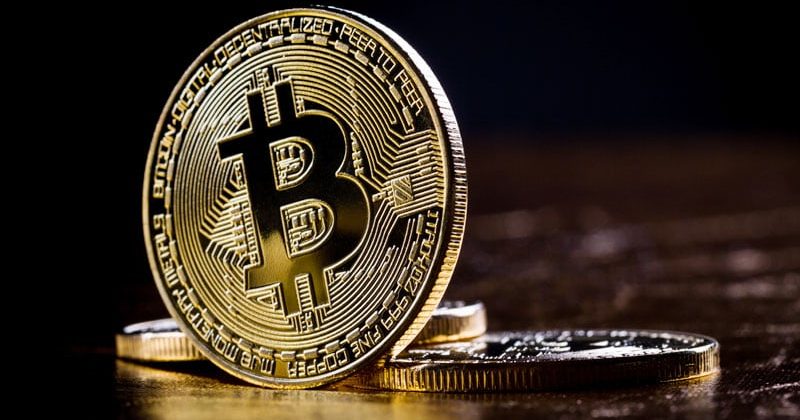David Rhoiney, DO, a general surgeon in Portsmouth, Virginia, first learned about cryptocurrency back in 2012, As a med student at the time, Rhoiney didn’t have the spare cash to invest, but he has kept an eye on the space ever since.
In the years since then Bitcoin, the original cryptocurrency, rocketed “to the moon,” as crypto fans like to say, to an asset with a market capitalization of $880 billion in mid-December (down from more than $1 trillion in November).
Rhoiney, who began investing in cryptocurrencies in 2020, cashed out his Bitcoin earnings this year to buy a Tesla. “Bitcoin is clearly not going to zero,” says Rhoiney, “It’s been around for a decade now. Crypto assets have a use case.”

Bitcoin’s spectacular but volatile rise has intrigued many investors. In 2010, bitcoin was valued at about 9 cents. By December 2018, its value had jumped to more than $9000, but plunged to $3400 by the end of that year. As of December 15, bitcoin is trading at $46,500.
Bitcoin was the first and remains the most famous cryptocurrency, but there are now thousands of different types of cryptocoins attracting the interest of physicians like Rhoiney and other investors. Cryptocurrencies are one type of digital asset, a broader category including all items that have value and exist in a digital format. Other digital assets include non-fungible tokens (NFTs) and equity tokens.
Cryptocurrencies are encrypted digital assets that users trade using a decentralized, online ledger known as the blockchain. That ledger exists across many devices, so there is no single person or entity in charge of it.
The encryption, combined with the decentralized ledger, makes transactions nearly impossible to fake or alter since the record of every transaction updates automatically across the entire network.
Some brokerages allow for the purchase of some digital assets, but often investors buy and sell them directly on decentralized exchanges. When you join an exchange, you typically connect it to your bank account, making it easier to exchange fiat currency (government-issued currency that is not backed by a physical commodity, such as gold or silver) for crypto. The price is high right now, and most of the exchanges allow you to purchase fractional bitcoin, so you can purchase any dollar amount value that you want.
Proponents of cryptocurrencies believe that the technology holds the potential to change the way that transactions take place throughout the globe.
However, there are many components of crypto to be aware of: It’s harder and more complicated to buy cryptocurrency than most traditional assets; there are few government or insurance protections; the volatility is much higher than with most other assets; and if you lose or forget the password to some crypto accounts, you may lose access to your holdings.
The explosive growth of Bitcoin and other high-profile digital currencies has also attracted investors who see them as a way to diversify their portfolio. Some crypto adherents think it has a future as a decentralized financial system, other believe it could serve as a hedge against inflation or as a store of value like gold. Detractors see only a speculative, risky investment that has little use as a means of payment. Famed investor Warren Buffett has called Bitcoin “rat poison.”
There is some mystery surrounding bitcoin. Its developer, known as Satoshi Nakamoto, is actually a pseudonym for the real developer of bitcoin…and even now, no one knows who that actually is. Rhoiney concedes that there are no sure bets when it comes to crypto.
“This is a very risky asset,” he says. “If you’re going to invest in the space, make sure you have a risk management plan.”
Amy Guerich, a senior partner with Stepp & Rothwell Inc, a Kansas City-based financial planning firm whose clientele is about one third physicians, takes an even more cautious approach with her clients.
“Our clients ask us about it all the time,” says Guerich. “But it’s hard for us in good conscience to recommend something that has no intrinsic value.”
Still, Guerich says she has several clients who invest in crypto on their own, with funds that they “play” with outside of their financial plan and the long-term portfolio they build with Stepp & Rothwell.
If you’re thinking about investing about dipping into the crypto market, answer the following questions first:
Why do you want to invest in cryptocurrency?
Fear of missing out is not a great reason to make financial decisions, whether you’re buying a house or building a portfolio. Cryptocurrency has made its way into the mainstream consciousness over the past few years, as coins like Bitcoin and Dogecoin have reached eye-popping valuations, minting a new crop of millionaires and media attention.
There have been fewer stories, however, about the traders who failed to time the markets and ended up losing some or all their investments when prices fell back down. Sure, it may seem like everyone else is making money in crypto, but in the late 90s it seemed like everyone was cashing in on tech stocks and in the early 2000s they were flipping houses.
“There are always winners and losers,” says Shelly-Ann Eweka, senior director of financial planning at TIAA, a financial services organization. “We always hear about the winners, but we seldom hear about the losers.”
Do you understand the asset?
From navigating altcoins (any cryptocurrency other than Bitcoin) to setting up a crypto wallet and choosing the best exchange, investing in cryptocurrency may require more of a learning curve than getting started in other asset classes.
Before diving in, you may want to take some time to familiarize yourself with jargon like “hot” (online) and “cold” (offline) storage and nodes (computers that connect to the block chain).
Not sure where to start? Coursera and The Wharton School at the University of Pennsylvania offer a free online class, “Cryptocurrency and Blockchain: An Introduction to Digital Currencies.” You can also find great beginner-level content at LearnCrypto.com and on the crypto exchange Coinbase.
Are you investing more than you should?
Given the speculative nature of cryptocurrencies, experts suggest only investing in cryptocurrency after you’re on track for all your other financial goals. That means you’ve established an emergency fund, paid down student loans and high-interest debt, maxed out your retirement savings.
“Go through your financial checklist and make sure that everything is in order,” says Eweka. “Then, if you have some money that you’re willing to take a huge gamble with, you can think about cryptocurrency.”
Even then, invest only as much in cryptocurrency as you can afford — or can stomach — losing. In general, keep your digital assets at no more than 2% to 5% of your net worth. If the value of your holdings goes much higher than that, consider rebalancing to take some of the risk off the table.
“You wouldn’t put all of your money into one stock or into a commodity like gold, so we don’t recommend that you do that with crypto either,” says Robert Michel, chief investment officer at Glen Eagle Advisors.
If you’re saving for short-term goals, like a wedding or a down payment for a house, keep those funds out of crypto as well.
Can you “Hold On for Dear Life” (HODL) ?
HODL is crypto-speak for “Hold on for Dear Life,” and it’s what crypto investors typically have to do through periods of extreme volatility. In the last year alone, Bitcoin has bounced from a low of $21,300 in December 2020 to a high of nearly $68,000 in November 2021 back down to $48,000 in December 2021, hitting numerous peaks and valleys in between
While the value of most other altcoins is significantly lower, they all exhibit massive price fluctuations on a regular basis. Cryptocurrency is essentially a new asset class, and investors are still trying to figure out how to price it — creating even more volatility.
“When you invest in crypto the value of what you own fluctuates every day, so you have no idea how much it’s really worth,” Guerich says.
Are you diversifying your crypto holdings?
Even if you keep your crypto investments to less than 2% of your net worth, you may want to diversify within those investments as well. While Bitcoin gets the most attention, there are thousands of altcoins in which you can invest. Still, most of them don’t have much of a track record to evaluate.
“Even in a diversified crypto portfolio, the weighting is mostly to Bitcoin and Ether [the second largest cryptocurrency],” says Jamie Hopkins, a director at the Carson Group. “Outside of that, you get small percents. It’s not like there is an S&P 500 of hundreds of quality crypto investments today. It’s relatively new, with only a few that are even worth it from a diversification standpoint.”
Rhoiney says he’s taking a “venture capital” approach to his crypto investments, allocating to a wide range of cryptos in the hopes that one hits it big.
“You spread a little bit over a lot of different areas and hope that one or two of them have outsized returns,” he says.
Where will you store your crypto?
One of the things that makes crypto riskier than other investments is that it’s a largely unregulated market, so your investments won’t enjoy any protections from the Securities and Exchange Commission or the Federal Deposit Insurance Corp (FDIC). To minimize risk, go with one of the larger crypto exchanges that emphasizes security.
If you opt to use a digital wallet, take extra precautions with your password. Unlike most online sites that allow you to reset your password by answering a few questions about your high school English teacher or first car, there’s no resetting the digital key (online password) you need to access a crypto wallet. That means if you lose or forget your password, you may never get access to that wallet — or your cryptocurrency — again.
What’s your time horizon?
The market for digital assets such as cryptocurrency and bitcoin is a rapidly evolving space. New coins “ICO” (launch with an initial coin offering) often, and new assets such as NFT are also rising in popularity.
As cryptocurrency continues to move into the mainstream, it’s also attracting the attention of both institutional investors and federal and international regulators. As new regulations roll out in time, it may get easier for retail investors to enter the space, although they may have missed out on the meteoric early rise of some cryptocurrencies. But there will also likely be a lot of cryptocurrencies that fizzle out in the meantime.
“It’s important to understand the difference between the innovation and the current use when it comes to crypto,” Michel says. “The innovation is the underlying blockchain technology. Everyone can recognize that in the future blockchain will allow you to create decentralized and secure contracts and financial transactions. But that doesn’t mean that every cryptocurrency is worth something.”
Source: Read Full Article
